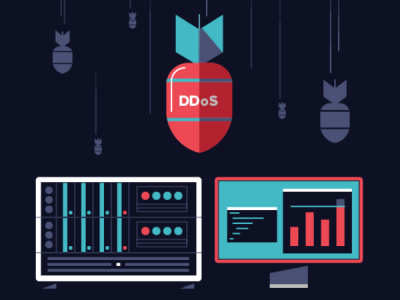DDoS Attacks on Sports Betting Services Tripled During the Pandemic
Qrator Labs has released the results of a study on the dynamics of attacks and changes in online traffic for companies across various business sectors during the spread of the coronavirus. The report is based on statistics collected from Qrator Labs clients for February and March 2020.
The global spread of COVID-19 and the resulting quarantine measures in many Russian regions have significantly impacted internet traffic patterns. Many online resources saw a substantial decrease in traffic, while user interest shifted to other services that began experiencing peak loads.
The change in the statistical profile of traffic was relatively gradual, driven by shifts in both the national and global economy.
Key Trends in Online Traffic
- Video Services: In March, video platforms—both well-known and pirated sites—became the main driver of traffic growth in Russia. With people forced to stay home, demand for entertainment content surged as many spent their free time watching movies and TV series, putting additional strain on companies providing these services.
- Online Advertising: Following the rise in video service popularity, online advertising saw a sharp increase of 17.92%. Many users watched movies on pirated sites, which host a large number of ads.
- Religious Services: Traffic to religious platforms grew by 30% to 500%. This may be due to believers participating in services via video calls and seeking spiritual perspectives on current events.
- Travel and Transportation: Traffic for travel companies, operators, and air and rail carriers decreased only slightly—by 0.78%. People continued to buy and use tickets for domestic travel and likely tried to get refunds for canceled trips. The drop in the tour operator sector was offset by more intensive advertising for air and rail travel compared to February.
- Healthcare: The medical sector saw a notable decline of 8.59%, mainly affecting paid cosmetic medical services. Real estate websites dropped by 1.70%, and niche/professional social networks by 1.88%.
Impact on Sports Betting and Other Sectors
After the cancellation or postponement of most major sporting events—from the Olympics to Formula 1 races—interest in sports betting services fell by 4.92%. However, DDoS attacks on this business category nearly tripled. This likely illustrates how, in times of crisis and a shrinking market, some players resort to non-market methods of competition. A similar situation was observed in e-commerce and online retail, where the number of attacks increased by 183%.
The only sector to show even more aggressive attack growth was online courses and distance learning services, with attacks increasing nearly fourfold. This is likely due to students’ resistance to continuing their education online. Despite this, traffic to online education sites grew by only 2.88%, even though many companies made their lessons and programs free during the epidemic. The growth in digital education traffic was not comparable to the 5.32% increase in entertainment content.
Other Notable Changes
- Financial Markets: As the crisis began and economic risks grew, many turned their attention to currency markets. As a result, the crypto exchange and Forex sectors saw significant growth in March (+5.56% and +3.13%, respectively). Microfinance organizations also experienced increased demand.
- Point-of-Sale Systems: Traffic for cash register systems increased, especially from March 1 to 21 (up to 7%). This was due to a rush to buy essential goods and a shift to card payments to avoid spreading the virus through cash, which likely increased the tax burden on some stores and the restaurant industry, which was still operating at the time. In the last week of March, traffic for cash registers declined but remained above February levels.
- Coupon Services: The closure of restaurants led to an overall decline in the coupon business sector (–5.82%).



